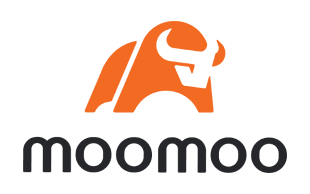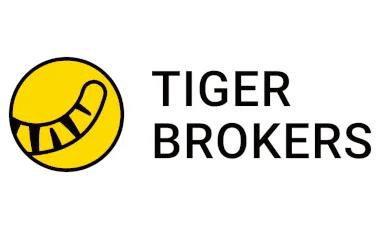Our top pick for
ASX trading

Australia is known as the lucky country, blessed with an abundance of natural resources.
Predictably, this means there's also an abundance of mining stocks on the Australian Securities Exchange (ASX), including some of Australia's indisputable blue chip companies like BHP, Fortescue and RIO Tinto.
Our top pick for
ASX trading

Our top pick for
Copy trading

Our top pick for
Beginners

Here are some of the largest exchange-traded funds (ETFs) that track the Australian and global mining sectors and are available to trade on the ASX:
Mining stocks are companies listed on a stock exchange that extract minerals from the earth.
Mined materials vary in composition and can be divided into the following major categories:
Mining is a critical sector to the Australian economy, making up for a large chunk of our resources, which has helped propel our economy as a whole.
There are 2 major mining categories known as the majors and the juniors.
Majors refer to mining operations that are well established, usually have decades of history, have operations around the world and have fairly steady cash flows. The majors in Australia include the likes of BHP, Rio Tinto and Fortescue Metals.
The majors have a proven history of making money. They can break down their costs into per tonnage and overall make it easier for investors to evaluate their share price.
On the other hand, juniors are small mining companies with less working capital and shorter histories than their major counterparts. Think of them as a type of growth stock specific to the mining industry.
They are rarely well funded, have short histories and are more based on higher hopes. On the upside though, given they aren't well established, they can have a higher upside should they be able to develop in their field.
The old saying goes: if you can't grow it you have to mine it. Thanks to its long history, economic viability and global demand, the mining industry holds great potential for profit, and mining stocks can pay strong dividends.
Many industries rely on mining efforts to produce the materials needed to manufacture their wares and services. Without cobalt, electric vehicle manufacturers would flounder. Without uranium, we wouldn't have nuclear energy.
Mining is a time- and energy-intensive process, but mining companies continue to expand their reach thanks to the international demand for what they source and produce.
This type of global reliance on mined materials makes this industry among the more powerful and viable investment categories.
Major mining companies offer the opportunity for steady returns and dividends while junior mining companies hold the potential for rapid growth. Before investing, you should research the mining company that interests you and what materials it yields to determine potential benefits specific to the product.
According to Finder data, 39% of Australian investors own mining stocks1, making it one of the most popular sectors with local investors.
The mining industry isn't immune to risk and faces several unique challenges, chief among them being economic and geopolitical shifts.
The mining industry tends to do well in an up market because the profitability of this sector is largely tied to the health of the global economy. When demand for mined metals and materials is high, mining companies are well-positioned for strong and consistent cash flow. But when demand is low in response to a down market, mining companies may suffer.
Mining companies are also vulnerable to political regulations depending on where their mines are located. Many mining stocks on the market are international companies with mine locations across the globe. A mine's location can have a big impact on a mining company's profitability as the political environment of the country the mine is located in can impact mining processes and material prices.
Mining companies are also unable to set the price at which they sell their products. The price of, say, iron ore is determined by the future markets. This limits the potential brand power of mining companies.
You'll need a brokerage account to invest in mining stocks in Australia. Compare options by features and fees to find the account that best meets your needs.
We currently don't have that product, but here are others to consider:
How we picked theseWe've scored over 30 share trading platforms assessing them for their core features, fees, customer experience and accessibility. Our experts give each platform a score out of 10.
Important: The standard brokerage fee displayed is the trade cost for new customers to purchase $1,000 of either Australian or US shares. Where a platform charges different fees for both US and Australian shares we show the lower of the two. Where both CHESS sponsored and custodian shares are offered, we display the cheapest option.
Major mining stocks represent a potential long-term investment with the opportunity for steady gains. Junior mining stocks may have more growth potential but are typically riskier investments. Before you purchase either, review your platform options to find the brokerage account in Australia that's ideal for your investment goals.
Looking to start investing? Here are our top 6 online trading platforms for total beginners in Australia.
We used Finder's proprietary algorithm to find Australian-listed companies that have strong fundamentals and have a share price under $5.
Best performers included Latitude 66, Cosmos Exploration and Javelin Minerals.
Here are our algorithm-selected 20 Aussie stocks worth watching in 2026.
You often hear people talk about whether the ASX200 is up, down or flat. So, why is it such a big deal?
Here's what investors should know before adding AI stocks to their portfolios.
Find out the different ways you can invest in the S&P 500 index from Australia.
Following a couple of lean years for dividend investors, here are 10 ideas you could consider in your portfolio.
Index funds are a hot topic right now, but how do you actually invest in them?
If you’re thinking of investing in gold, our guide will explain how and where to buy gold in Australia as well as the pros and cons of investing in it.